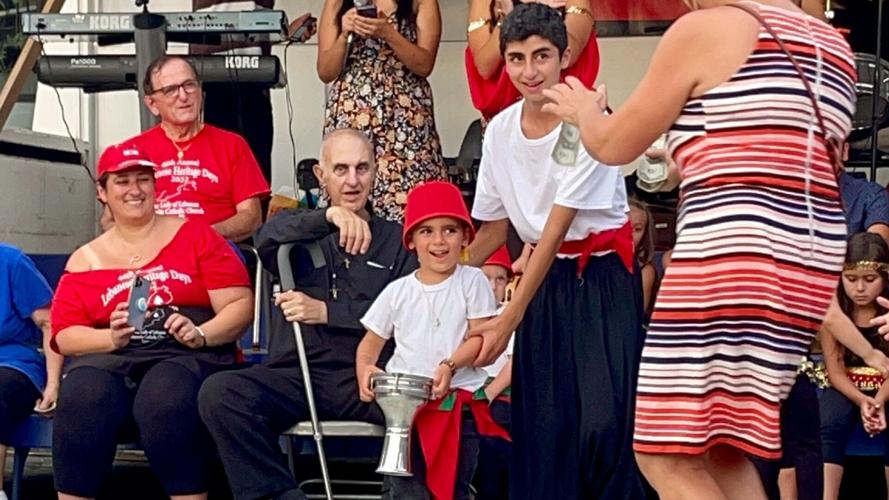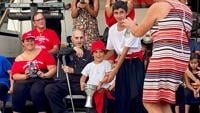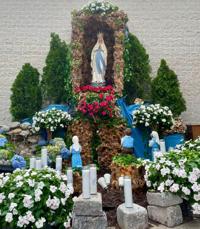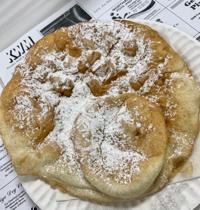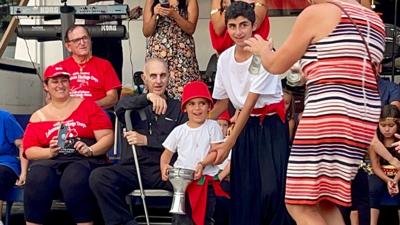EASTON, Pa. – Thousands of people descended upon Our Lady of Lebanon Maronite Catholic Church on Saturday, and many more are expected for the second day of the church's longstanding festival on Sunday.

A shrine to the Blessed Mother is built on the exterior of the church for patrons to visit and pray.
In its 46th year, the two-day celebration of Lebanese culture and heritage showcases the music, the dancing, the hospitality, the tradition and perhaps most notably — the food — that church volunteers come together to offer visitors from all backgrounds and from across many states.
Dishes including stuffed grape leaves, chicken and rice, kibbee (a combination of meat and bulgar wheat), stuffed cabbage, baked macaroni, tabbouli and hummus are served in the air-conditioned church hall, where tables and seating are also available.
Outside, festival-goers can find other Lebanese favorites such as grilled chicken with garlic paste, kafta (grilled meat with parsley and spices), falafel and shish kabob.

Freshly made fried dough with powdered sugar is available at one of festival's outdoor stands.
No Lebanese meal is complete without dessert, and there are plenty of traditional Lebanese pastries from which to choose, from baklava to namoura, as well as other sweets including fried dough and Italian ice.
For less adventurous eaters or picky kids, the festival also offers some traditional American fare: hamburgers, hot dogs, French fries.
Lebanese Heritage Days aren't just about the food, though. From blocks away, you can hear the live singers and band on the stage outside the church, performing new and old, familiar Arabic songs throughout the day and night.
But it's the troupes of children and young adults performing ethnic dances in traditional attire that steal the scene. After weeks of practicing and preparing, the troupes show off their moves as friends and family surround them and throw dollar bills over their heads — a Lebanese custom that happens at many celebratory events, such as weddings. The money is collected from the floor and, in this case, goes to the church.
And if you're not in the troupe, just head to the makeshift dance floor in the parking lot, grab a hand in the "dabke" dance line and learn as you go.
The festival's second day runs Sunday from 11 a.m. to 10 p.m., and the dance troupes start performing at 7 p.m.
